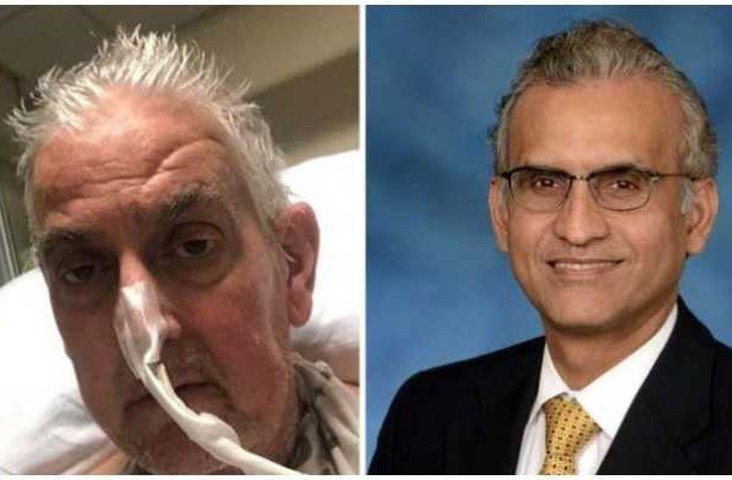A surgeon from Pakistan was part of a team that formed history by transplanting a pig heart into a human, and the patient has so far survived several days.
The transplantation was overseen by Dr. Mohammad Mohiuddin, MD, scientific and programme director of the Cardiac Xenotransplantation Program at the University of Maryland School of Medicine (UMSOM).
Dr. Mohiuddin, a Karachi local, is also a recognised expert in xenotransplantation, or the transplantation of animal organs. He is also a professor of surgery at the University of Mississippi School of Medicine.
“This is the result of years of difficult research to perfect this approach in animals with survival durations of more than nine months.” According to a statement made by the UMSOM and the University of Maryland Medical Centre, “the FDA used our data and data on the experimental pig to permit the transplant in an end-stage heart disease patient who had no other therapy choices” (UMMC).
Dr. Mohiuddin graduated from Karachi’s Dow Medical College in 1989 with a bachelor’s degree in medicine. According to News18, he came to the United States and got his first fellowship in transplantation biology at the University of Pennsylvania, followed by a fellowship in bone marrow transplantation at Drexel University’s Institute of Cellular Therapeutics.
He went on to say that the knowledge and discoveries made by the team during the procedure will be useful to the medical community in the future. He remarked, “The successful surgery offered significant information to help the medical community improve this possibly life-saving method in future patients.”
Dr. Mohiuddin assisted Dr. Bartley P Griffith, MD in transplanting the pig heart into Maryland resident David Bennett’s body.
Bennett’s son told the Associated Press that the transplant was a desperate, extremely experimental procedure that he committed to because he was dying and had no other options.
Bennett said in a statement the day before the operation, “It was either die or perform this transplant.” “I’d like to live.” I realise it’s a gamble, but it’s my last resort.”
The groundbreaking transplant could pave the way for the future use of animal organs rather than human ones. Donors are in scarce supply of the latter.
There is a track record for animal organ transplantation into humans, known as xenotransplantation, and it isn’t good. In 1984, for example, a baboon heart was transplanted into a child, but the baby only lasted for 21 days.
However, surgeons claim that a gene-editing technique was used this time to eliminate sugar from the cells. Sugar is to blame for the human body’s fast rejection of animal organs.
The American Food and Drug Administration, which must approve xenotransplant procedures, granted the green light under the heading of “compassionate use.” In other words, without the transplant, the patient was doomed.
It’s being heralded as a quantum leap ahead, after doctors in New York temporarily linked a pig liver to a cadaver and observed its activity last September. Dr. Robert Montgomery led the operation, and he is optimistic after the success in Maryland.
Montgomery stated in a statement, “This is a genuinely spectacular breakthrough.” “As a heart transplant recipient with a genetic cardiac condition, I am ecstatic about this news and the hope it provides for my family and other patients who will benefit from this discovery.”
